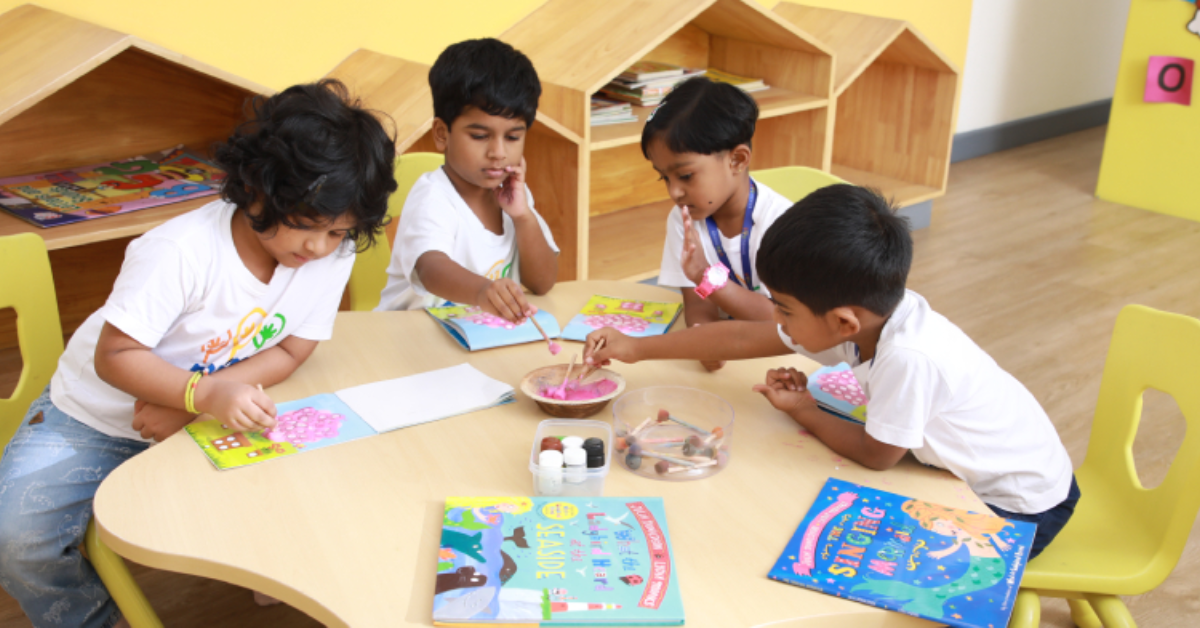Best Pre-Schools Near Me: A Guide to Choosing the Right Early Education
Finding the best preschool for your child can feel like a daunting task. With so many options available, it’s essential to carefully evaluate the schools to ensure they align with your values, goals for your child’s education, and your personal preferences. This article will guide you through the key factors to consider when choosing a Best Pre Schools Near Me and highlight the Best Pre Schools Near Me, offering a comprehensive understanding of what to look for in early childhood education.
Why Early Childhood Education Matters
The early years of a child’s life are crucial for their intellectual, social, and emotional development. Research shows that the experiences children have during their early years, especially between birth and five years old, have a lasting impact on their future learning and well-being. High-quality early childhood education helps children develop critical skills, such as:
-
Cognitive development: Building foundational knowledge and the ability to think, problem-solve, and understand new concepts.
-
Language skills: Developing communication skills through vocabulary expansion and conversation.
-
Social and emotional development: Learning to share, express feelings, and interact with peers and adults.
-
Physical development: Fine and gross motor skills development through activities like drawing, playing, and using their hands.
Choosing the right preschool ensures that your child receives the necessary foundation for a successful educational journey.
Key Factors to Consider When Choosing a Preschool
When selecting a preschool, consider the following factors to make an informed decision:
-
Curriculum and Learning Philosophy
Different preschools follow different educational philosophies. It’s essential to understand the curriculum used by the preschool to ensure it matches your child’s learning style. Some popular approaches include:-
Montessori: A child-centered approach that emphasizes hands-on learning, independence, and respect for the child’s natural development.
-
Reggio Emilia: Focuses on collaborative learning and encourages children to explore their creativity and curiosity.
-
Play-based learning: Encourages learning through play, where children learn social, cognitive, and motor skills in a structured yet fun environment.
-
-
Qualified and Experienced Teachers
The quality of educators is one of the most important aspects of a preschool. Teachers should be well-qualified and experienced in working with young children. Look for staff members who are not only trained in early childhood education but also possess the passion and patience required to foster a positive learning environment. -
Class Size and Teacher-to-Child Ratio
The smaller the class size, the more individualized attention your child will receive. A low teacher-to-child ratio ensures that each child can benefit from personalized learning. Ideally, look for a preschool with small class sizes where teachers can adequately support each child’s development. -
Location and Convenience
Proximity to your home or workplace is an important factor when choosing a preschool. A school that is conveniently located will reduce travel time and stress for both you and your child. It’s also helpful to consider transportation options and whether the preschool offers pick-up or drop-off services. -
Facilities and Play Areas
A preschool should provide a safe, stimulating environment where children can explore and engage in a variety of activities. Check that the school offers well-maintained classrooms, outdoor play areas, and facilities that support creative learning. A well-equipped play area with outdoor activities is essential for physical development. -
Parent Involvement
The best preschools welcome parent involvement and encourage communication between parents and teachers. Look for schools that offer opportunities for you to engage with your child’s education, such as parent-teacher conferences, volunteer opportunities, and parent support groups. -
Health and Safety Standards
The safety and well-being of your child should always be a top priority. Ensure that the preschool follows strict health and safety guidelines. Check for certifications, such as first-aid training for staff, childproofing of classrooms, and proper hygiene practices. Additionally, inquire about security measures like access control and staff background checks.
The Benefits of Attending Preschool
Attending preschool has numerous advantages that prepare children for both academic success and social integration. Here are some of the key benefits:
-
Early Socialization: Children learn to interact with peers, share, and resolve conflicts in a group setting. This is essential for building social skills and learning how to function in a community.
-
School Readiness: Preschool prepares children for the structured environment of primary school by introducing basic concepts like numbers, letters, and following instructions.
-
Increased Confidence: Children who attend preschool are often more confident when starting kindergarten. They are familiar with routines, group settings, and following instructions, which eases the transition to formal schooling.
-
Enhanced Cognitive Skills: Preschool helps children develop essential cognitive skills, including problem-solving, critical thinking, and language skills. The early introduction to learning concepts gives them a head start for future academic success.
-
Parental Peace of Mind: Choosing a quality preschool gives parents the peace of mind that their child is receiving appropriate education and care during their formative years.
What Should a Preschool Offer?
-
Language Development: A strong emphasis on both verbal and written communication through storytelling, reading, and singing.
-
Hands-On Learning: Activities that foster cognitive development, such as puzzles, games, and hands-on science experiments.
-
Social Skills: Structured activities that encourage interaction with peers, sharing, and cooperation.
-
Physical Activity: Opportunities for both fine and gross motor skill development through physical play, arts, and crafts.
-
Emotional Growth: Programs that promote empathy, resilience, and conflict resolution, helping children understand and manage their emotions.
Frequently Asked Questions (FAQ)
1. What age should my child start preschool?
The ideal age to start preschool is typically between 3 and 4 years old. At this age, children begin to develop the social and cognitive skills needed to benefit from a preschool environment. However, some schools offer programs for younger children starting at 2 years old, while others may offer early kindergarten programs for older children.
2. How do I know if my child is ready for preschool?
Signs that your child may be ready for preschool include:
-
Interest in interacting with other children
-
Ability to follow simple instructions
-
Potty trained (although some schools may allow exceptions)
-
An interest in learning and exploring new things
3. Should I visit the preschool before enrolling?
Absolutely! Visiting the preschool in person allows you to get a feel for the environment, interact with teachers, and see how children engage with each other. It’s also a great opportunity to ask questions about the curriculum, safety measures, and daily routines.
4. How long should my child attend preschool?
Most children attend preschool for one or two years before transitioning to kindergarten. Some children may attend for longer if the program is part of a pre-kindergarten curriculum.
5. What should I look for in a preschool teacher?
A good preschool teacher should be compassionate, patient, and experienced in working with young children. They should encourage curiosity and foster a love of learning while providing a safe and structured environment.
6. Can I change preschools if my child isn’t happy?
Yes, it’s possible to change preschools if you feel the current one isn’t the right fit for your child. It’s important to listen to your child’s feedback and assess whether their needs are being met.
Conclusion
Choosing the right preschool for your child is a crucial decision that can impact their future development. By considering factors such as curriculum, teacher qualifications, class size, and the overall learning environment, you can make an informed choice. Remember to take your time, ask questions, and involve your child in the process if possible. With careful consideration, you’ll be able to find the best preschool near you that supports your child’s growth and learning in a safe, nurturing, and stimulating environment.







